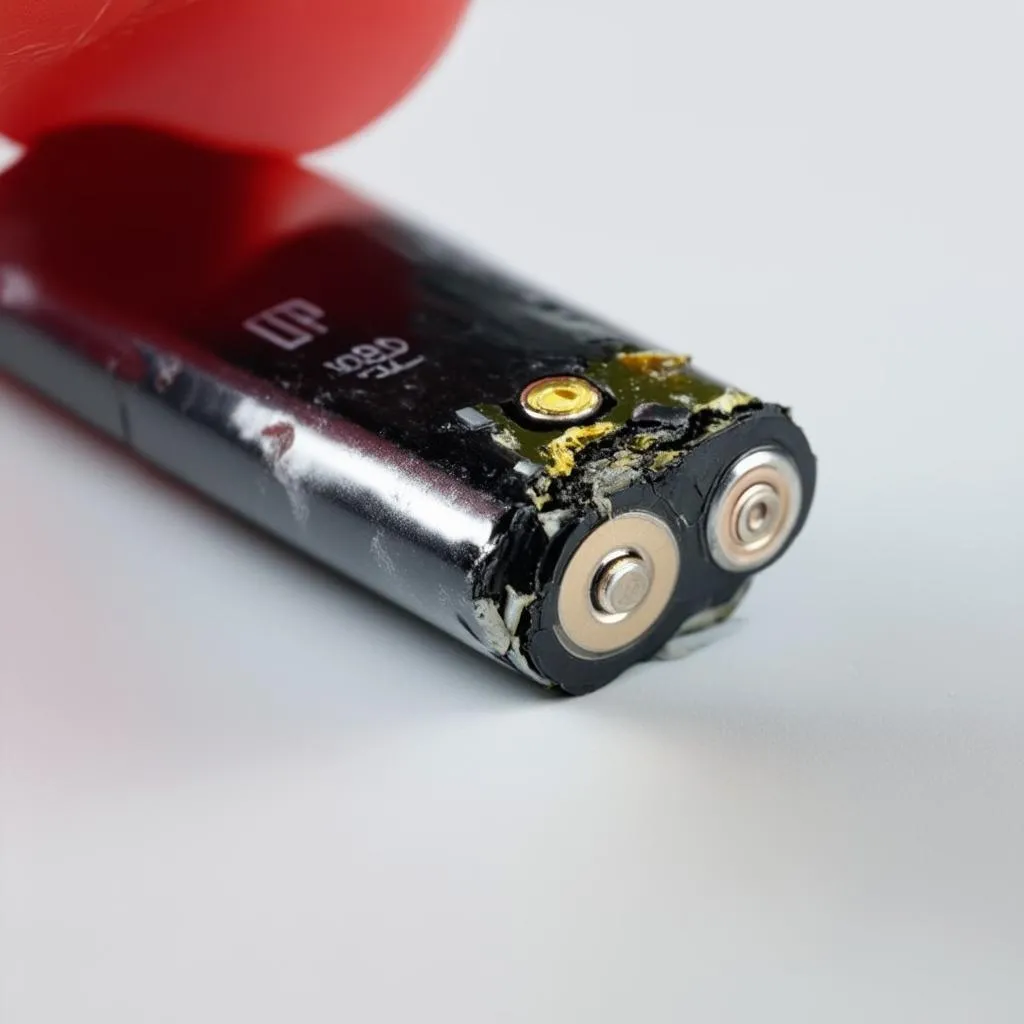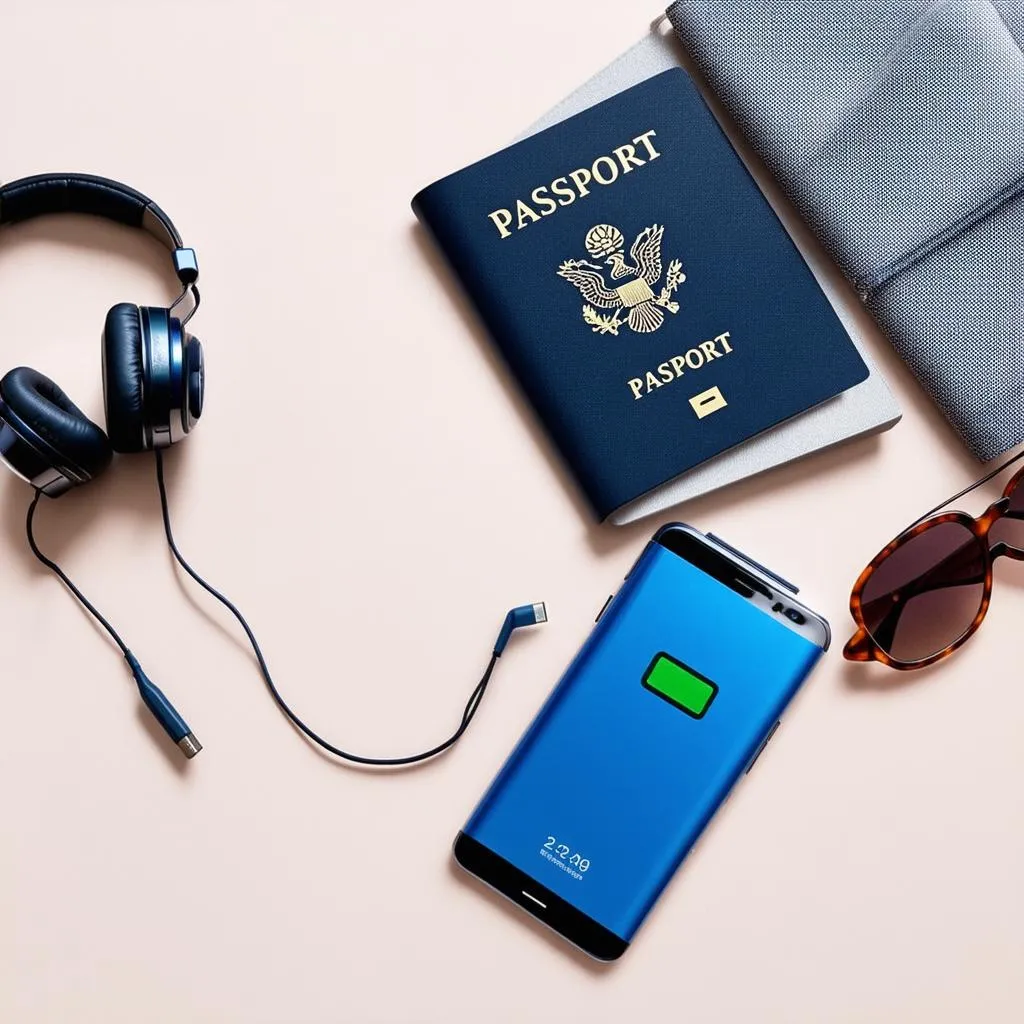Remember that time you were about to board a flight to Bali, bags packed with sunscreen and dreams of pristine beaches, only to realize you weren’t sure if your trusty power bank was allowed on the plane? We’ve all been there, grappling with the rules and regulations surrounding lithium batteries and travel. But fear not, fellow adventurers! This guide will equip you with all the knowledge you need to navigate the world of lithium batteries and travel safely and confidently.
Understanding the Power (and Potential Risks) of Lithium Batteries
Lithium batteries power our smartphones, laptops, cameras, and even some cars. They’re lightweight, rechargeable, and generally safe. However, they contain flammable electrolytes and can pose a fire risk if damaged, defective, or exposed to extreme temperatures. This is where travel regulations come into play.
Lithium Batteries and Air Travel: What You Need to Know
Most airlines, including those operating flights to popular destinations like the bustling streets of Bangkok or the serene landscapes of Iceland, have strict regulations on carrying lithium batteries. These regulations are primarily concerned with preventing fires during flights.
Types of Lithium Batteries and Travel Restrictions
Lithium batteries are broadly classified into two types:
- Lithium-ion (Li-ion) batteries: Found in most portable electronic devices like smartphones, laptops, and tablets.
- Lithium-metal (Li-metal) batteries: Often found in non-rechargeable devices like watches and some cameras.
Generally:
- Li-ion batteries are usually allowed in carry-on luggage, subject to Watt-hour (Wh) limits. Most airlines permit batteries up to 100Wh without prior approval.
- Li-metal batteries, especially those exceeding a certain lithium content, often require airline approval.
- Spare batteries typically need to be individually protected from short-circuiting.
Pro Tip: Always check with your airline for their specific lithium battery regulations before you travel.
Traveling with Damaged or Recalled Batteries: A Definite No-No!
Imagine this: you’re finally reaching the majestic peaks of Machu Picchu after months of planning, only to have your trip marred by a battery mishap. To avoid such scenarios, it’s crucial to inspect your batteries before you travel. Never travel with damaged, defective, or recalled batteries.
 damaged lithium battery
damaged lithium battery
Packing Your Lithium Batteries Like a Pro
Packing your batteries properly can make all the difference between a smooth journey and a travel nightmare. Here are some tips:
- Carry-on Luggage is Key: Keep your lithium batteries in your carry-on luggage whenever possible. This allows for easier monitoring and faster access in case of an emergency.
- Short-Circuit Prevention: Protect your batteries from short-circuiting by using insulating tape to cover the terminals or storing them in their original packaging.
- Keep it Cool: Avoid exposing your batteries to extreme temperatures. Remember that sweltering desert road trip to the Grand Canyon? Your batteries might not appreciate the heat as much as you do!
 travel essentials and lithium battery
travel essentials and lithium battery
Beyond Air Travel: Lithium Batteries in Checked Luggage and Road Trips
While air travel regulations are generally more stringent, it’s essential to consider lithium battery safety for all modes of transport. When packing your car for a scenic drive along the Pacific Coast Highway, ensure your devices are stored securely to avoid overheating or damage.
FAQ: Your Burning Lithium Battery Travel Questions, Answered
Can I bring a portable charger on a plane?
Yes, portable chargers (power banks) are generally allowed in carry-on luggage, but their capacity is often restricted. Most airlines allow power banks up to 100Wh. Check with your specific airline for their regulations.
How can I find out the Watt-hour rating of my battery?
The Watt-hour (Wh) rating is usually printed on the battery itself. You can also find this information in the device’s user manual or on the manufacturer’s website.
What should I do if my lithium battery starts to overheat or emit an odor?
If you notice any unusual signs from your lithium battery, immediately inform a flight attendant or a transportation authority. Do not attempt to handle or extinguish the battery yourself.
Traveling with Peace of Mind: Lithium Batteries and You
Navigating the world of lithium batteries and travel might seem daunting, but with a little knowledge and preparation, you can travel safely and confidently. Remember to check your airline’s specific regulations, pack your batteries properly, and prioritize safety at all times.
For more travel tips and information, visit travelcar.edu.vn.